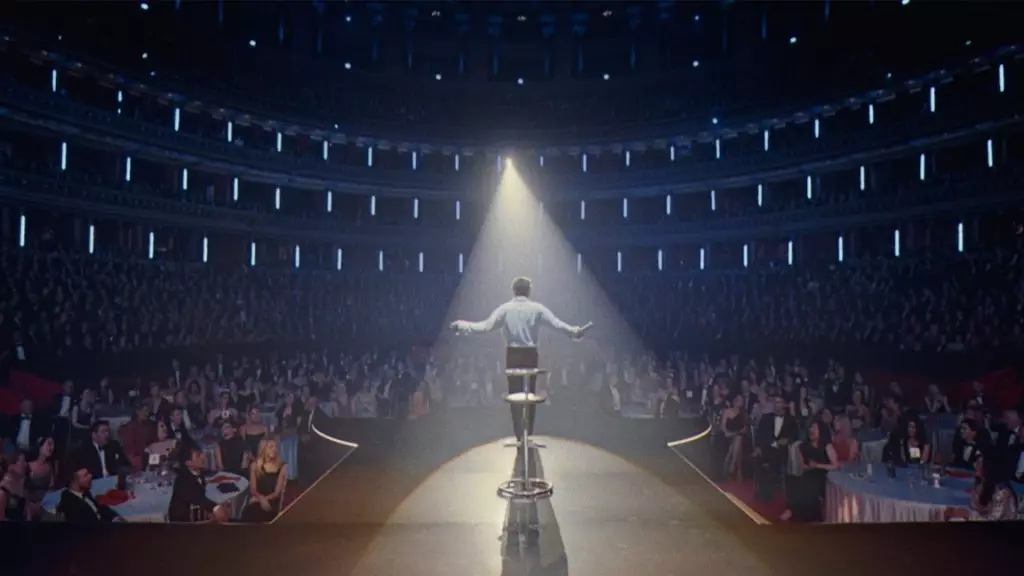In the wake of Liam Payne’s tragic passing, the music world is once again confronted with the heavy toll that fame can exact on individuals. Robbie Williams, a figure who has traversed both the highs and lows of celebrity life, has articulated his feelings of grief and sorrow in poignant terms. As he reflects on his own experiences and the painful reality of Payne’s death, he urges society to critically examine how fame is managed and the often-overlooked ramifications it harbors.
During his recent conversation with Deadline, Williams described the impact of Payne’s death as a “world-wide shock,” a feeling that resonates deeply within the entertainment community. “I’m sat in depression, and I’m sat in sadness. A huge part of that is Liam-shaped,” he confesses. Such raw honesty presents a vulnerability often masked beneath the glitz and glamor of celebrity life. Williams, who himself rose to fame as a teenager, suggests that the weight of fame is an experience shared by many, yet it remains largely unaddressed.
Liam Payne, former member of the globally celebrated band One Direction, tragically fell from the third floor of a hotel in Buenos Aires before his life was prematurely extinguished at just 31. Williams poignantly parallels his own trajectory with that of Payne, understanding the mental and emotional struggles that often accompany sudden fame. The juxtaposition of the glamorous public persona against the inner demons battles is a recurring theme in the lives of many artists.
Williams is not merely mourning; he is also advocating for change. He questions, “Nothing seems to change and if it isn’t me, then who?” By putting himself in the spotlight as a potential catalyst for conversation, he challenges the complacency that often envelops the discourse around fame and mental health. His assertion that “we are the problem if we don’t” suggests a communal responsibility, pushing for greater awareness and understanding of the pressures faced by public figures.
The discussion of how society handles fame takes on a broader and more urgent dimension in Williams’ reflections. He highlights how the culture of celebrity can foster an environment where individuals are seen as commodities rather than human beings, subjected to a relentless cycle of scrutiny and expectation. This dynamic, tied closely to the rise of social media, further exacerbates the pressures that celebrities face, a sentiment echoed by emerging artists like Chappell Roan, who confronts the industry on issues of exploitation and mental health.
Bridging Generations of Artists
Williams also reminisces about the time he spent mentoring Payne and his One Direction bandmates on The X Factor. His self-deprecating admission that he “hardly did anything” during the mentorship illustrates the unstructured yet meaningful exchanges that can characterize such relationships. Despite the playful banter and camaraderie, there lies an underlying message of solidarity in the face of adversity that transcends generations of artists.
Payne’s struggles resonated with Williams, whose own narrative has involved battles with addiction and anxiety stemming from the pressures of fame. The friendship between the two highlights the importance of support systems within the industry, not just for guidance in navigating success but also in confronting personal demons.
In remembering Liam Payne, Williams brings to light a crucial conversation: celebrity is a double-edged sword. He asserts that this issue transcends individual experiences, categorizing it as a deep-rooted “human problem.” The societal structures that govern the fame game often neglect the well-being of the people behind the headlines. As Williams points out, “this is not a fame problem, this is a human problem,” urging everyone to empathize with the emotional toll that stardom can inflict.
In the aftermath of tragedies like Payne’s, there lies an opportunity for introspection and dialogue that can lead to meaningful change. Celebrities, fans, and society at large must engage in a candid conversation about mental health, support, and the harsh realities of fame. Williams’ candidness not only honors the memory of Liam Payne but also serves as a clarion call to address a pervasive issue that affects many but is often discussed too quietly. In doing so, we may pave the way for a more compassionate understanding of those who live their lives under the unforgiving gaze of the spotlight.

